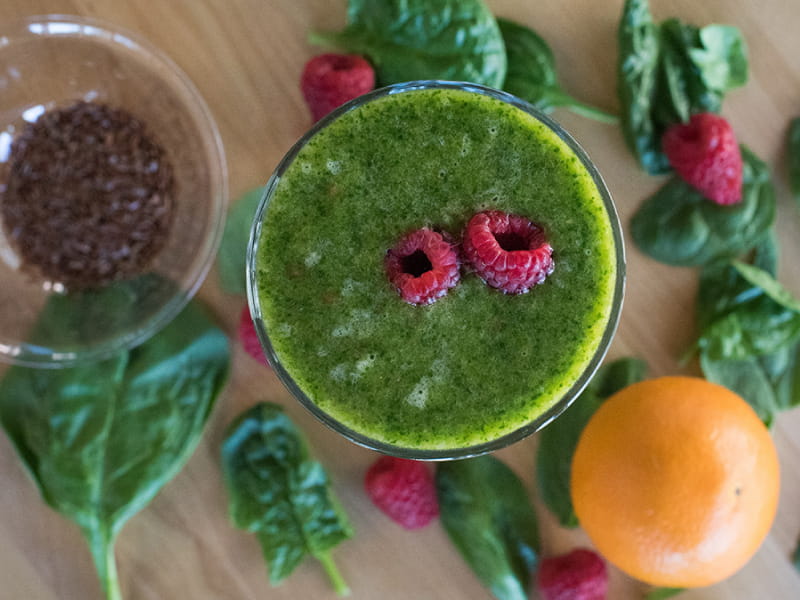Tropical smoothie adds a healthy green touch to St. Patrick's Day
By American Heart Association News

Looking for something green for your St. Patrick's Day feast? Skip the mint ice cream and shamrock-colored beer in favor of a nutritious tropical green smoothie.
The recipe gets its sweetness from fruit and its color from spinach, a vegetable loaded with nutrients.
"Spinach is a dark, leafy green with a lot of benefits. It's rich in phytonutrients and vitamin C, has a bit iron, and it's low in calories," said Maya Vadiveloo, an assistant professor in the department of nutrition and food sciences at the University of Rhode Island. "You could actually add more spinach to this recipe as long as it doesn't affect the taste."
With its blend of orange, mango and banana, the smoothie puts you well on your way to meeting the daily recommended amount of four servings of fruits and five servings of vegetables.
"With this smoothie, you're getting two and a half or three servings," she said. "If you want even more vegetables, you can add carrots, beets or kale."
Unlike fruit and vegetable juices, smoothies are typically made with whole fruit, which is rich in fiber. Still, Vadiveloo said, consider the tropical green smoothie a drink, not a replacement for a meal.
"On its own, it's not as balanced as a meal in terms of protein, carbohydrate and (healthy) fat," she said. "It's more in the snack category."
If you have questions or comments about this story, please email [email protected].





